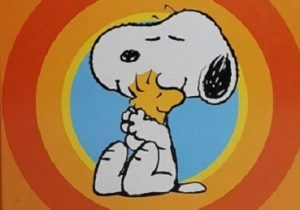Popular board games in the 60s may not have had the whiz-bang factor of today’s video games, but they entertained kids and families for hours on end. And, unlike today’s screen machines, the tabletop games of yore forced you to *gasp* interact with folks in your own house. How many of these classic board games form the 1960s have you played?
Clue
Players explore a mansion to find out who killed Mr. Boddy and with what weapon by interrogating each other using the clues given in secret from their cards.
Candyland
The player moves their token along the game board (a map of a fictional land) collecting pieces of candy or coins that match the colors they have landed on until they are able to reach King Kandy’s castle before another player does.
Chutes and Ladders
A race game where players advance up ladders and slide down chutes aiming for different spaces according to dice rolls. The game is won when the player reaches a “Home” or equivalent space before any opponents do.
Monopoly
Players trade properties and bankrupt their opponents by an increasing set of property prices as they move around a board to eventually have all other players land on squares that require them to pay rent.
The Last Straw
A game in which players take turns adding straws to saddlebags slung over a camel’s back until — yes — said camel’s back breaks. Animal activists of the day must have had nightmares over this one. Or, you know, anyone who ever played it.
Mr. Spin-Head
A game in which players roll a spinner and move their pieces according to the number they land on. Players can also move other player’s pieces by landing on them, but if they get caught doing so, then that person takes back control of their piece.
Parcheesi
Similar in design to Ludo but played on a smaller board where pieces are moved according to rolls of two dice and landing either over or under others entitles the moving player to capture them.
Scrabble
Played with a set of 100 letter tiles where players form words on a board according to English spelling and word formation rules
Yahtzee
Players roll five dice up to three times in turn order. A player must then match each die by either choosing one from their hand or receiving an extra throw for that die based on its value if it is showing. The matching scores are totaled and recorded (the sum of all numbers coming into play). If no score can be obtained within the turns allowed, then the game ends as a stump unless someone has already reached 50 or more points. The person with the highest score at that point wins.
Battleship
One person plays at a time against an opponent with each taking turns guessing where five ships are hidden on a grid (a naval ship’s position is given by row and column). The object for players is find coordinates where there warships might be located based on what were revealed so far. If one guessed correctly it can blow the other’s ships up.
Sorry!
Players take turns spinning a spinner and moving that many spaces around the board trying to land on one of four possible squares in order. If they get sent back from where they started by landing on another player’s spot then it is called “going out.” The object for players is to be first to go all the way around without getting blocked off at any point.
Feeley Meeley
Players roll a die in turn and land on one of six sections. They move their counter according to the number rolled until it gets bumped off or reaches “home.”
Green Ghost
A game that has players move a peg around the board, landing on spaces and picking up cards. The object is to be first to collect all four green ghosts by going through each space.
(Like Popular Board Games in the 60s? Then you might like our article on Popular Board Games in the 50s, click here.)
(affiliate links)







